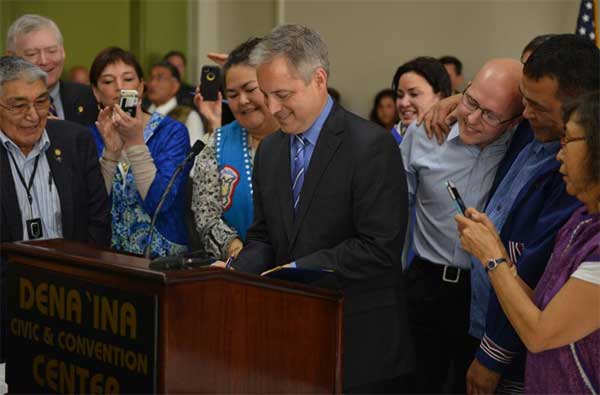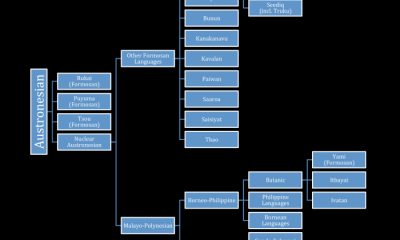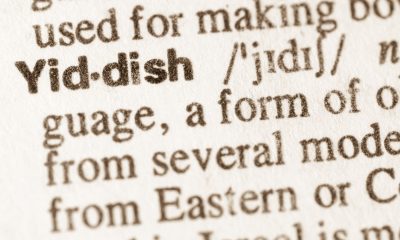
On October 23, 2014, during the Alaska Federation of Natives (AFN) Convention, Governor Sean Parnell of Alaska signed the Native Language Bill into law. It was an emotional ceremony for those present at the AFN.
This was the first time that representatives of the various Alaska native people were able to speak their native language in public officially. They each spoke in their native tongue as a huge crowd, tribal leaders, legislators and the governor looked on.
Official state languages
By virtue of the signing of House Bill 216, the 20 native languages in Alaska including, Eyak, Dena’ina, Tsimshian, Koyukon, Alutiiq, Haida, Tlingit, Yup’ik and Inupiaq are now official state languages, aside from English. There were profuse thanks from the participants because they are now assured that they can freely use their language and that their language will not be lost. According to some stories, oppression occurred before and there were instances when the children’s mouths were taped and their hands were slapped when they spoke their mother tongue, because Alaska only recognized English as the official language.
The AFN Convention
The convention, which lasted for three days, was the biggest gathering of the year for Alaska Natives and it was held at the Dena’ina Civic and Convention Center in Anchorage. It gathered about 5,000 participants from Barrow to Sitka. It brought income to Anchorage during the three-day event, and gave politicians an opportunity to mingle with the people and solicit votes. It was an event that served many functions, from family and colleague reunions to being a showcase of cultural performances and a huge art show for Alaska Native artists and craftspeople.
This year’s convention theme was “Rise as One.” It was a call to vote and a call to action. Attendees were told by co-chairwoman Ana Hoffman of the AFN that they could go to the city hall in Anchorage to vote early. Elders were allowed to send a representative to collect the ballot for them.
The convention agenda included reports from leaders of the Alaska Natives on their innovative programs such as the Southcentral Foundation initiative. This program aimed to mend the damage in the Alaska Native community caused by neglect, abuse and domestic violence. The convention also read reports from the top officials from the Obama administration. Work sessions were conducted on education, climate change and public safety. Food security was also discussed, with a focus on tribal co-management and subsistence harvests.
Benefits of restoring native languages
The author of the bill, Rep. Jonathan Kreiss-Tomkins (D-Sitka) said that his decision to create the bill occurred about 18 months ago when he discussed it with Lance Twitchell, who was an Alaska Native languages assistant professor in Juneau. The professor said there was evidence of the great benefits of restoring Native languages, citing a study conducted in British Columbia. This study found that when more than half of the indigenous people in a community are proficient in their mother tongue, the suicide rate becomes nil.
He repeated this study result when he gave his speech in front of the convention attendees during the announcement. He also said that being able to call things just like their ancestors used to do is a means to connect the people to their culture and to the land.
There was a bit of confusion for the special event, as this was not held on the main stage. The AFN board thought that Governor Parnell was only going to use the event for his political gain because he was running for re-election. The Governor said that it was planned that the bill be signed during the convention where representatives of all Alaska Natives would be present.
Alaska now becomes the second state after Hawaii where indigenous languages are recognized officially.
Image credit: Governor Sean Parnell during the signing of House Bill 216, photo by Office of Governor Sean Parnell State of Alaska © 2014.















Facebook
Twitter
Pinterest
Google+
LinkedIn
Email